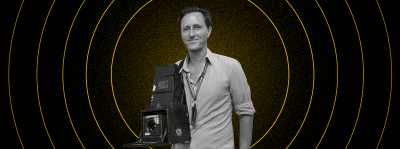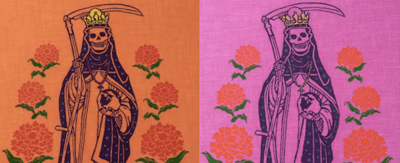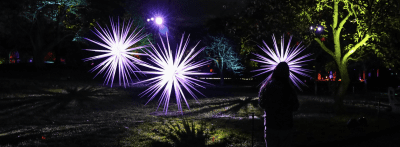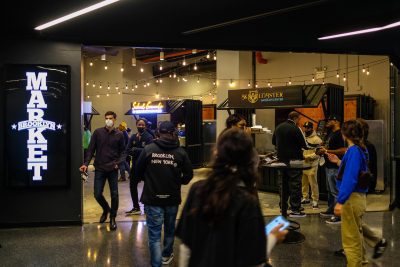Parquet Courts is Wide Awake!
A painter, a poet, and the frontman of the Brooklyn-based post-punk band, Parquet Courts, Andrew Savage is an artist any way you cut it. On “Wide Awake!” the band delves into a complex range of socio-political issues, including violence, oppression, identity, and the merits of collectivism. Although the lyrics on “Wide Awake!” evoke a dark reality, the record stands out not simply for its sardonic criticism, but also for its upbeat optimism. If one would attempt to boil the motif of the LP down to one phrase, it might be “the world may be teetering on the brink of the apocalypse, but damn it – you’re going to dance!” You can catch Parquet Courts performing at Brooklyn’s Northside Festival on The Liberty Belle this coming Sunday, June 10th.
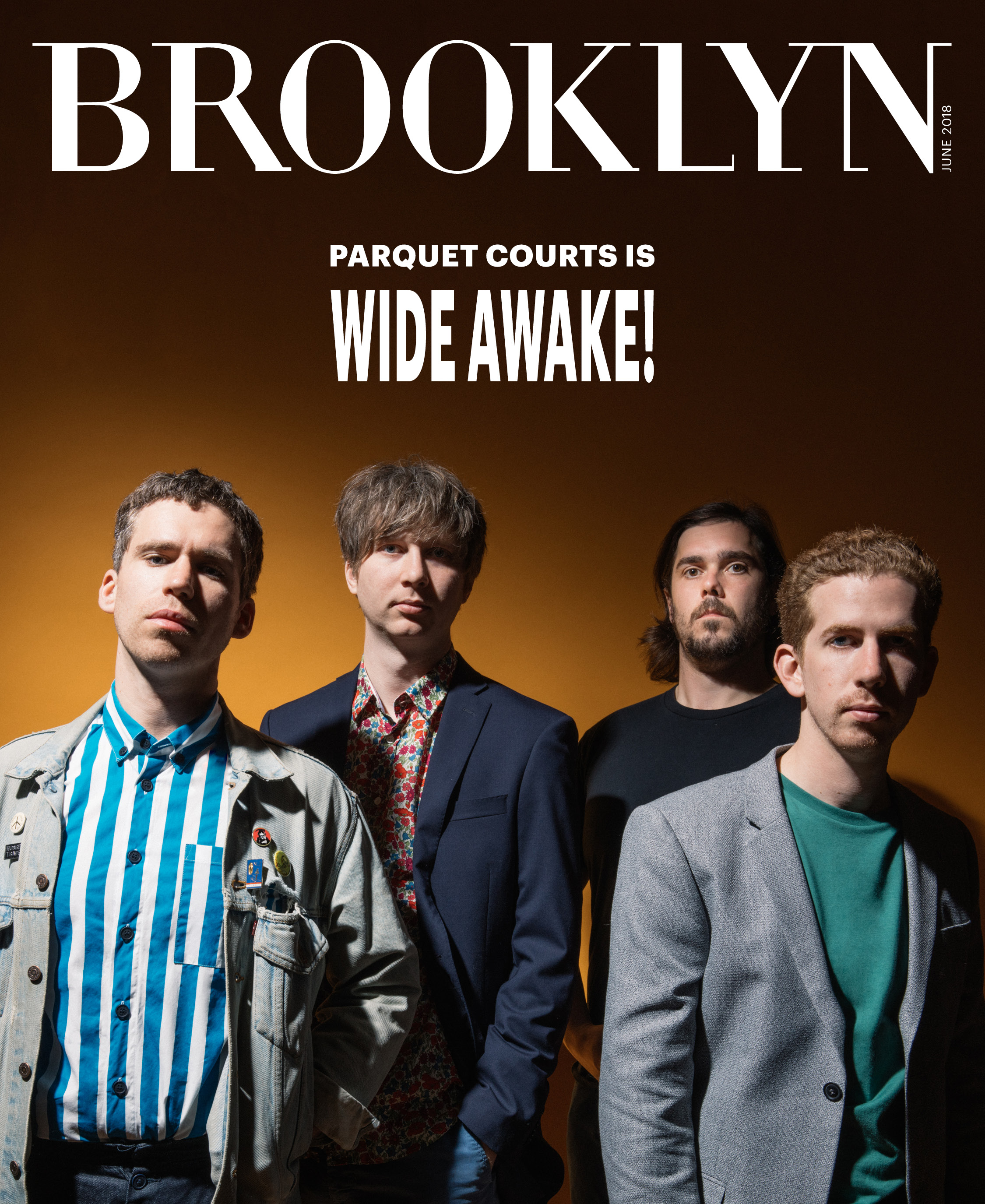
As much as the songs on this album just make you want to move, it’s clear, when you listen, that the lyrics are very serious, and draw attention to a number of issues, like violence and oppression, which affects a huge amount of Americans today. Sometimes it really seems as if we are “trapped in a brutal invention,” as you sing in “Almost Had To Start A Fight.” Why do you think we have collectively struggled so much to address domestic issues like these?
It’s a diverse array of issues but I think that maybe we (Americans) kind of struggle with it because a lot of it has to do with kind of this collective identity that either we’ve invented as Americans or either we’ve been told we are. With a lot of change, identity is always going to be an obstacle. With America, a lot of those issues are rooted and may be a kind of form of identity that at one time was well-meaning, but now that identity is being used by obstructionists to prevent progress from happening. I think the concept of the American individual and the freedom and liberty that we talk about, in theory, it’s a cheerful thing but I think it’s kind of lacking nuance now and people are kind of grasping on to it. This sort of ideology is sort of a form of faith and that’s one thing that the lyrics in “Total Football” kind of deal with. There needs to be a new approach to this type of ideology so that we can move forward in the culture.
…the “chaos dimension” cannot be contained by any border. I think it’s a place but it’s several places and I don’t wanna say it’s a state of mind because it’s not my state of mind but I feel like I’m in it.
In the same song, I was intrigued by your idea of getting stuck in the “chaos dimension.” Is that a state of mind, or perhaps a real place?
It’s a place but the “chaos dimension” cannot be contained by any border. I think it’s a place but it’s several places and I don’t wanna say it’s a state of mind because it’s not my state of mind but I feel like I’m in it.
“Violence,” the second track on the album, is quite a loaded song. Was the line “blazer of the Trail of Tears” (Andrew Jackson) “issuing overdraft fees from beyond the grave,” inspired by any specific recent events? Or were you more so looking to deconstruct US history to make sense of the present?
Trump has a portrait of Andrew Jackson in the Oval office and Trump’s on record being an admirer of Andrew Jackson. But a lot of what that line is about is that people’s oppression and people’s economic oppression becomes even more oppressing when there’s no representation of anybody but whites on currency. So having to strive for this currency that has a picture of an orchestrator of genocide on it, I think that was incredibly cruel.
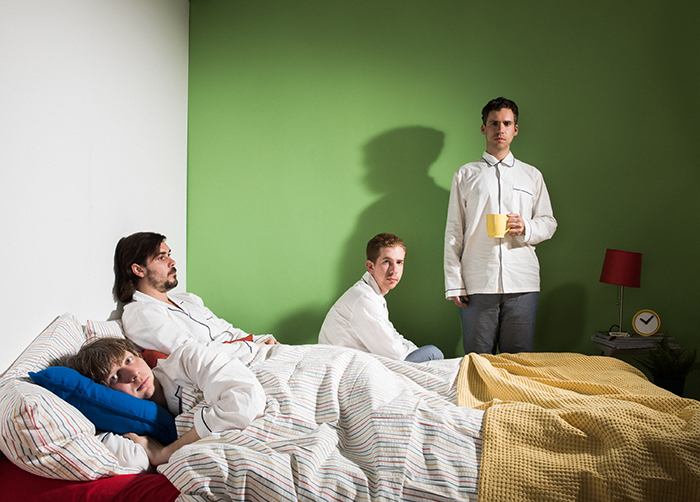

You also go on to ponder your role in the “pornographic spectacle of black death/At once a solution and a problem,” in “Violence.” How do you think we collectively work together to cure the root of the issue?
I think you see that sort of thing happening right now with the March for Our Lives protests that are going on. I think that one thing everyone can do, is try to in turn influence society by making your voices heard. That’s something that I’m doing in the lyrics to “Violence.” Make your voice heard and let people know that it’s okay to feel disgusted by this and it’s not un-American. Also vote for people that aren’t going to take money from gun industry lobbyists.
I also think people probably need to be a little more self-aware of their role and privilege in society and not get so offended and bent out of shape when people point that privilege out. People are really afraid in America to talk about class and how people are systematically disadvantaged. I think there needs to be an education to people about that and probably from a young age. People need to know the ways that our society kind of divides one another and how some people are economically more privileged than others so that it can be addressed, because, if people are uneducated about it, it’s a really difficult thing to address for a lot of people. It’s a difficult thing to wrap their heads around.
…you kind of resign to this sort of numbness, this thing that makes you feel strange that you don’t burst out in tears because you’re so used to things like that.
Similarly, you say “Savage is my name because Savage is how I feel / When the radio wakes me with the words ‘suspected gunman.’” In the wake of recent events, what are the thoughts that run through your head when you hear the words ‘suspected gunman’?
Of course you think, “Not again.” But also you kind of resign to this sort of numbness, this thing that makes you feel strange that you don’t burst out in tears because you’re so used to things like that. That’s a scary thing. And that’s why we do songs like “Violence.” It is our way to mourn and react to it. I think we’ve become too used to this idea and this is something society shouldn’t be used to.
I know that you and the guys did a couple recording sessions at Electric Lady Studios in New York. To me, the singing style and vocal enunciation in some parts of the song “Freebird II” seemed slightly evocative of Jimi Hendrix’s singing style. Was there any conscious Hendrix influence going on?
You’re not the first person to point that out. I had never heard that before until Brian Burton (Danger Mouse) pointed it out to me. He pointed that out for me when I was doing the vocal takes for “Freebird II,” which we didn’t do at Electric Lady. We did that in Texas at a studio called Sonic Ranch. But he said “Man, you sound like Jimi on this track,” which is not a thing I’ve heard before, but I guess since he said that, other people have pointed it out to me too.
It wasn’t like the ghost of Jimi guiding me or anything. I wasn’t in Electric Lady, not that his ghost would haunt Electric Lady. Anyway he was a great singer and had a great voice so to be in his company… (laughs)
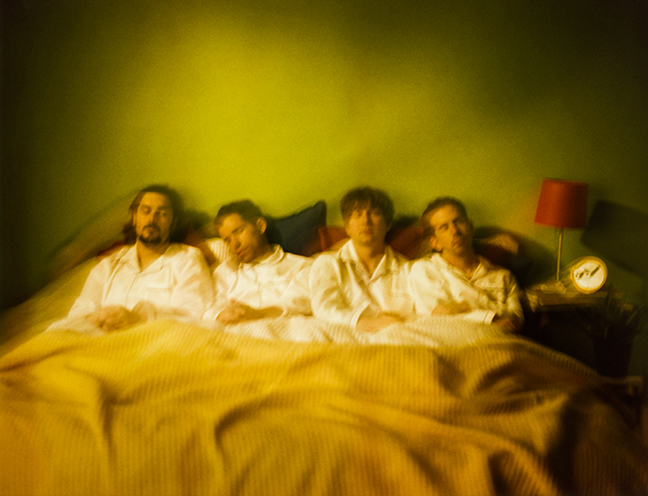

Andrew, considering you create visual art as well as music, I’m curious about the concept behind the album art for “Wide Awake.” What were some inspirations for your design, especially as it pertains to the album as a whole?
Just like any record, I tend to kind of immerse myself in the music, so when I was making it, the record was being played on repeat to kind of get into it. I mean there’s a lot of references, lyrical references, too – all the imagery is in the lyrics, I think. It all comes out there. And the color kind of has to do with the sound. I guess, I link color and sound a lot. Each Parquet Courts record has a pretty strong color presence on it so having the red and green palette on this one was very important to me.
I guess I was reading and looking at a lot of TinTin comics so there’s a bit of that sort of linework present. I don’t often use black outline but I did for a lot of the art for the record and that’s how we ended up with a lot of those type of drawings.
Could you tell me a bit about the album artwork?
to me I was kind of thinking of the Circle Jerk photo – the skanking guy. Was thinking of something like that.
Maybe it would say something like “Dancing is encouraged” because there are dancing guys on the cover.
You’ve said before you are attracted to records because they draw you in. What do you think this particular album art might say about the album to someone unacquainted with Parquet Courts?
Maybe it would say something like “Dancing is encouraged” because there are dancing guys on the cover.
In consideration of your affinity for records, I was curious: what are a few of your favorite records that synthesize a similar dichotomy between visual and sonic art? Do you have any favorite record stores in the city (particularly Brooklyn)?
Brooklyn, there’s Record Grouch, Academy is amazing, all of the Academy branches are amazing but the Brooklyn one is great. Capture Track store is cool. Not in Brooklyn, but Downtown Music Gallery is great, and that’s in the Lower East Side. Greenpoint has kind of become the record store district.
The text “Wide Awaaaaake” is a reference to the movie art and the soundtrack art of “Sweet Sweetback’s Baadasssss,” [for] which that song is also a sonic influence, as well.
Although you guys all know each other from Denton, Texas, you formed Parquet Courts and have been living in New York City for almost a decade, now. What are a few of your favorite parts about living in the borough? What are some of your least favorite aspects?
I don’t have this kind of Brooklyn specific identity I guess. I kind of consider myself a New Yorker that happens to live in the borough called Brooklyn. I probably hang out more in Lower Manhattan because I’m off the A train rather than Williamsburg or Bushwick, because it’s harder for me to get to those neighborhoods than Lower Manhattan. I mean, I think the thing in Bed Stuy where I live, I like the quiet of it. I like all of the trees. Got a lot of pretty blocks. My studio is here. My apartment’s here. Bed-Stuy has its own little world here. I go out to eat here. I go grocery shopping here. I go to bars here. I like that Bed-Stuy is like a 30-something neighborhood, whereas the rare times I go out in Bushwick, I’m kind of on the older end. I’ve been in the same apartment for the past seven years. It’s very much home now.
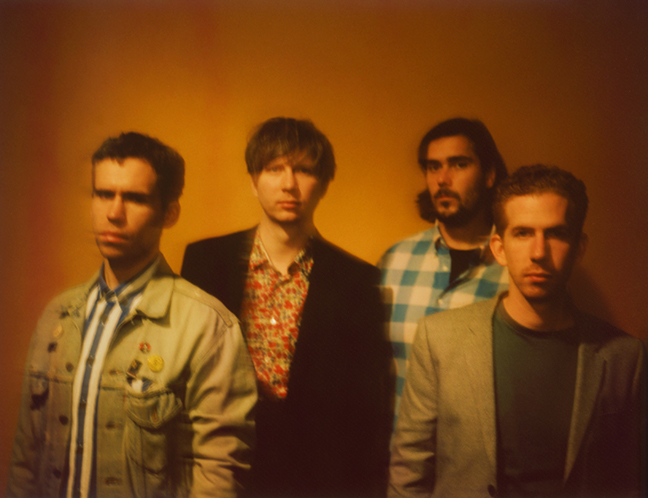

When you’re not working on Parquet Courts material, do you try to spend most of your time in your studio in Bed Stuy?
Pretty much all of my time is spent there.
Is there anything in terms of visual art, that you’ve been working on recently or have you been primarily focusing on music?
Yeah I have a huge project right now. I’m working on 20 paintings that are going to a hotel in Los Angeles. The hotel is opening in August.
Last but not least, I want to ask: in your opinion, what makes performing in front of a Brooklyn, New York crowd different than performing in front of any other crowd?
We’ve probably played some of our biggest shows here. It kind of has that special feeling that a hometown show does. You’re not going back to a hotel. You’re going to your crib. You’re hanging out at your bar after the show. It’s got a special feeling for me. I hear people talk about New Yorkers being stiff, but I don’t find that at all. I think New Yorkers get pretty funky especially at Parquet Courts shows.
Parquet Courts will be performing aboard the Liberty Belle on Sunday, June 10 at Northside Festival. You can still get a badge to see them play the otherwise sold-out show here!
You might also like 

















